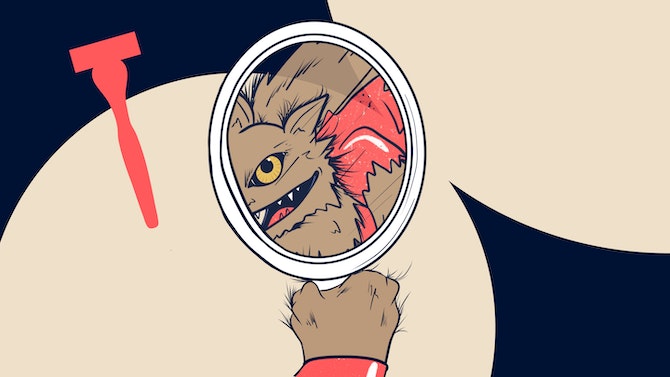
DSC Magazine, October 16 2022
The Truth Behind Spoooooky Grooming Myths
There are a lot of horror stories around shaving — let’s see which are true, and which are big, hairy lies.
Since we’re counting down to Halloween, we thought we’d get into some weeeiiiirrrrd grooming myths and see if we can bust the fakes once and for all. Because, well, bustin’ makes us feel good (sorry).
Shaving Makes Your Beard Grow Back Like a Werewolf
False! It’s truly shocking how prevalent this myth is, but it’s patently false. While shaving can make it look as though your beard hair grows back thicker, what’s actually happening is that shaving leaves your beard hairs with blunt ends, rather than their naturally tapered tips. End result, your hair looks a little thicker, but isn’t.
Manscaping Stops You Smelling Horrific
True…ish. Hair is really good at trapping smells (think about how the hair on your head smells after sitting around a campfire), so losing the pit hair means tossing out what is essentially a B.O.-soaked sponge. You’ll still experience some odor, since your pits (and groin) contain apocrine sweat glands, which produce a greasy, high-protein sweat, and the bacteria that actually cause B.O. love that stuff. But that’s the other advantage of shaving the hair in those areas — it denies the bacteria a big chunk of hairy real estate.
Your Beard Is Filthy and Should Be Banished
False! Well, okay, your beard is filthy — you might remember a Swiss study from a few years back, which found that men’s beards generally had more germs in them than dog fur, including Staphylococcus and various kinds of fecal particles. But despite this, a beard may still do you some good. A study published in the Journal of Hospital Infections recounted how researchers had swabbed the faces of 400 male hospital staff, and found that clean-shaven men were three times as likely to have the antibiotic-resistant bacteria known as MRSA on their faces. An analysis from the BBC offered an intriguing explanation: Beards contain at least one microbe that’s part of a species called Staphylococcus epidermidis, which actively kills harmful bacteria. So that’s definitely a point in favor of the face fuzz.
